Prime Minister Narendra Modi on Tuesday held separate talks with his counterparts from Japan Shinzo Abe and Australia’s Malcolm Turnbull focusing on crafting a new strategy for the Indo-Pacific region in the backdrop of emerging configuration of a key quadrilateral alliance.
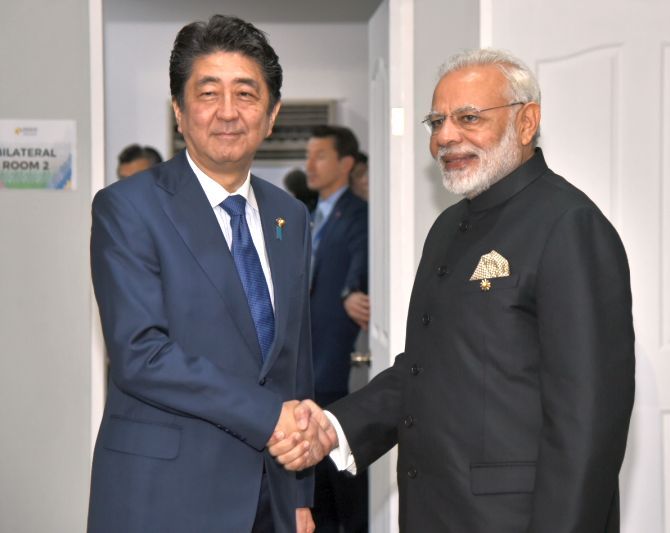
On the second day of the ASEAN summit in Manila, Modi also held bilateral meetings with Vietnamese Premier Nguyen Xuan Phuc, Sultan of Brunei Hassanal Bolkiah and New Zealand Prime Minister Jacinda Ardern, and discussed ways to further ramp up cooperation in various key areas like trade and investment and maritime security.
The prime minister’s meetings with Abe and Turnbull came a day after he held “very expansive” talks with US President Donald Trump on intensifying overall security and defence cooperation, particularly in the Indo-Pacific region where China is strengthening its military build up.
On Sunday, India, Australia, Japan and the US held their first meeting to give shape to the much talked about quadrilateral alliance to keep the Indo-Pacific region “free and open”.
The issue was discussed during the Modi-Trump meeting on Monday and is understood to have figured in the prime minister’s talks on Tuesday with both Abe and Turnbull.
“My friend @AbeShinzo and I had an excellent meeting in Manila. We reviewed the ground covered on various aspects of India-Japan ties and discussed ways to deepen cooperation between our economies and people,” Modi tweeted.
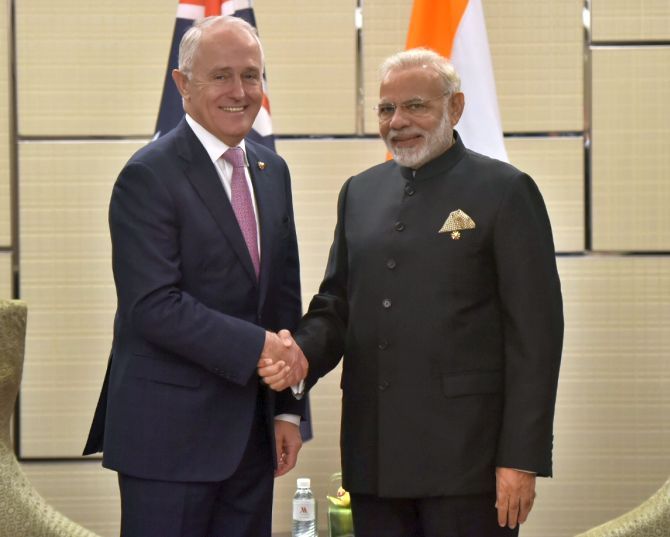
Without giving much details, external affairs ministry spokesperson Raveesh Kumar said the two leaders held a “wide ranging and engaging” discussion on “intensifying” special strategic and global partnership between the two countries.
Japan’s Foreign Minister Taro Kono last month had said that Tokyo favours the quadrilateral dialogue to further boost strategic partnership among the four countries.
On his talks with Turnbull, Modi said he was delighted to meet the Australian prime minister and that their discussions added new vigour to the friendship between the two countries.
In a tweet, Turnbull described the meeting as “productive” and said the discussions focused on increased economic cooperation, security, and counter-terrorism.
The MEA spokesperson said the two leaders discussed ways to optimise significant potential for further cooperation across a broad range of areas.
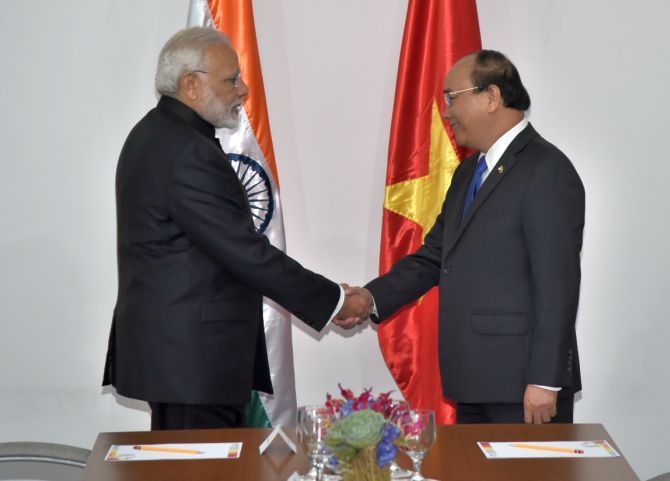
A number of issues including bilateral cooperation in defence and security sphere were discussed in Modi’s meeting with his Vietnamese counterpart.
“Vietnam’s PM, Mr Nguyen Xuan Phuc and I held wide ranging deliberations on enhancing India-Vietnam friendship, which can greatly benefit our citizens and region,” Modi tweeted.
The Modi-Phuc meeting came days after Trump’s visit to Vietnam where he offered to mediate in the South China Sea dispute between several ASEAN member countries including Vietnam, and China.
China claims sovereignty over all of the South China Sea, a huge source of hydrocarbons. However, several ASEAN member countries including Vietnam, the Philippines and Brunei have counter claims.
India has been supporting freedom of navigation and access to resources in the South China Sea in accordance with principles of international law, including the 1982 UN Convention on the Law of the Sea.
Modi described his meeting with the New Zealand prime minister as “wonderful” adding they discussed deepening economic and cultural cooperation between the two countries.
On his meeting with the Sultan of Brunei, Modi said the “extensive talks” will broaden bilateral ties between the two countries.
“Glad to have met Sultan Hassanal Bolkiah of Brunei. Our extensive talks will broaden bilateral ties between our nations,” he said in another tweet.
Kumar said both leaders had fruitful discussions on expanding bilateral partnership, specially in trade and investment, renewable energy, culture and people to people contacts.








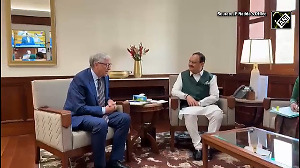

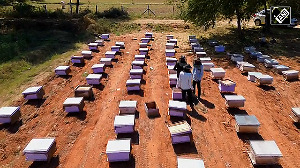
 © 2025
© 2025